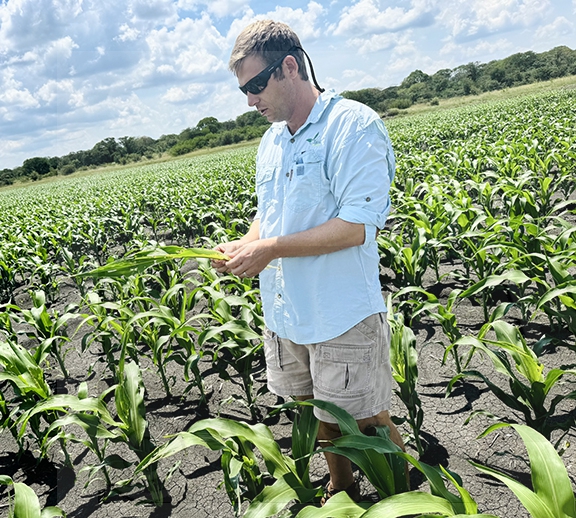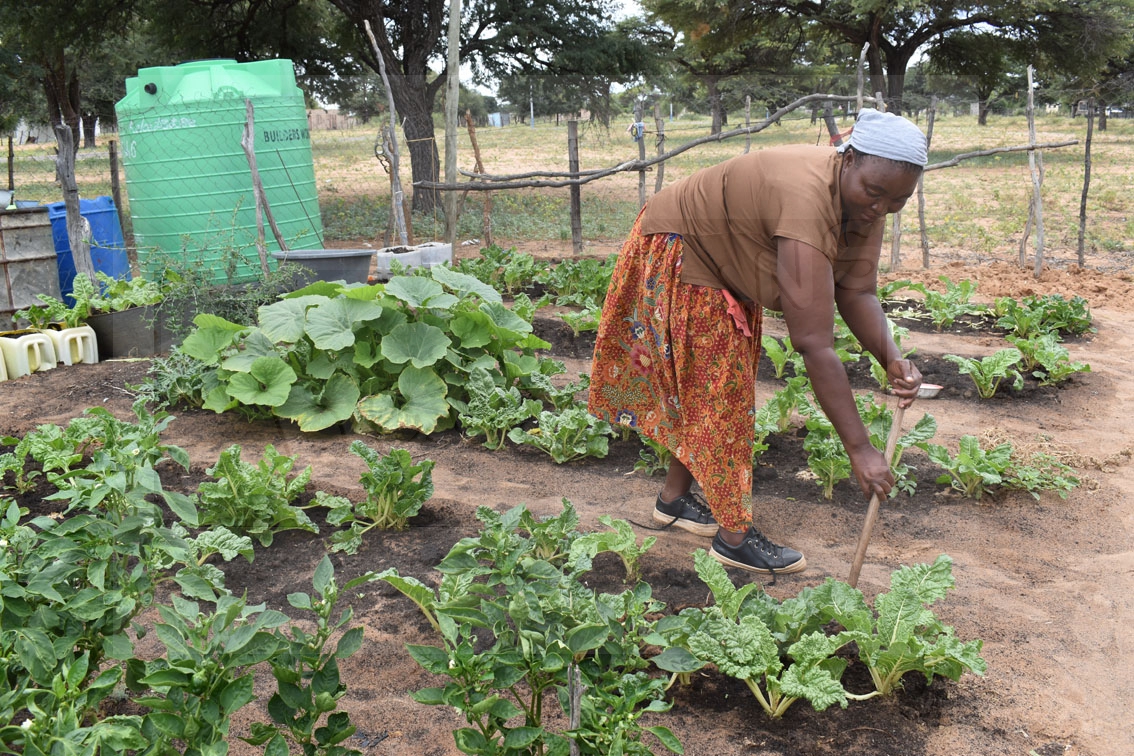Farmer fears lifting of import ban
25 Feb 2025
At Rakhuna, about 35km south of Lobatse, rows of cabbage heads bask under the clear blue skies next to snowy shade nets covering crimson red tomatoes at a commercial farm by the roadside. The high yielding commercial horticulture farm belongs to 48-year-old Vusi Gumede, who produces about 60 000 heads of cabbages per season and 10 tonnes of tomatoes per week to supply major chain stores. This is a dream come true for Gumede, who grew up in the high-density township of Bontleng, in Gaborone.
He bought the farm a long time ago and left it barren, occasionally bringing his family for leisure, but when the vegetable import ban was enacted in 2023, he grabbed the opportunity to produce vegetables for sale.
A heavy plant mechanic by profession, he resorted to full time horticulture farming when his business of servicing earth-moving machinery took a nose dive, thanks to the COVID-19 pandemic. “I had properties, apartments at Extension 14 and Bontleng as well as New Stance and I sold some of them to develop the farm. I drilled a borehole and equipped it through government’s ISPAAD horticulture programme,” he said.
Above all, Gumede lauds government for implementing the Integrated Support Programme for Arable Agriculture (ISPAAD) programme and Impact Acceleration Subsidy (IAS) grant, which enabled him to equip the borehole, fence the farm, connect electricity, install shade nets, solar panels, drip lines and buy farm chemicals and seedlings, where government assisted with over P450 000 in phases. “If it was not for government, I would not be where I am today,” he said.
Armed with passion for farming and driven by determination to feed his family, he started off by bush clearing.
“I am glad to say right now I am running a successful farm, where we have 10 permanent employees. We started off with two and as the farm expanded, we increased production, we continued to employ more due to the intense farm workload,” he said.
The farm is spread on five hectares of land and he enjoys support from big chain stores such as Choppies and Shoprite, who work with him through contract farming. “We started with half this land and continued to extend. We would also like to apply for more land to be able to produce more,” he said.
He fears the day in April when the vegetable import ban will be lifted will reverse the gains government made and the investments horticultural farmers put into farming as market would be a challenge for local farmers. “If the borders open, big chain stores will no longer buy from us. Most of these chain supermarkets are from South Africa, these shops have their farms and farmers that they have contracts with in South Africa, so local farmers will bear the brunt,” he said. “Borders must remain closed. If they open it might lead to job losses unless government puts in place a plan to provide a market for local farmers,” he said.
Gumede reasons that there will be fierce competition for the market, cautioning that local farmers might not survive. “In a nutshell we will be competing against the South African government because it supports its farmers and so it is going to be challenging. In Botswana for a farmer to connect to Botswana Power Corporation electricity grid, it costs an arm and a leg, while in South Africa electricity connection to farms is free,” he said.
He said it was easy for South Africans to sell vegetables to Botswana while it was difficult for local farmers to penetrate the South African market. The Southern African Customs Union (SACU) trade agreement that promotes free trade and economic development and facilitate the sharing of revenue, he said, formed part of the instruments establishing free trade between states. However, he said SACU seemed to not be in favour of local farmers. “For me to sell cabbage to South Africa, my produce has to go through many tests, the truck will spend about seven days at the border and by the time I get a permit, the vegetables would have lost quality, for them it is easy to sell to Botswana,” he said.
According to Gumede, when Botswana imposed vegetable import restrictions, ‘we were told that it contravened the SACU trade agreement, if that is the case, government must make it easier for us to access the South African market. Laws must be relaxed to allow for Batswana to sell to neighbouring countries,” he said.
ENDS
Source : BOPA
Author : Calviniah Kgautlhe
Location : LOBATSE
Event : Interview
Date : 25 Feb 2025





